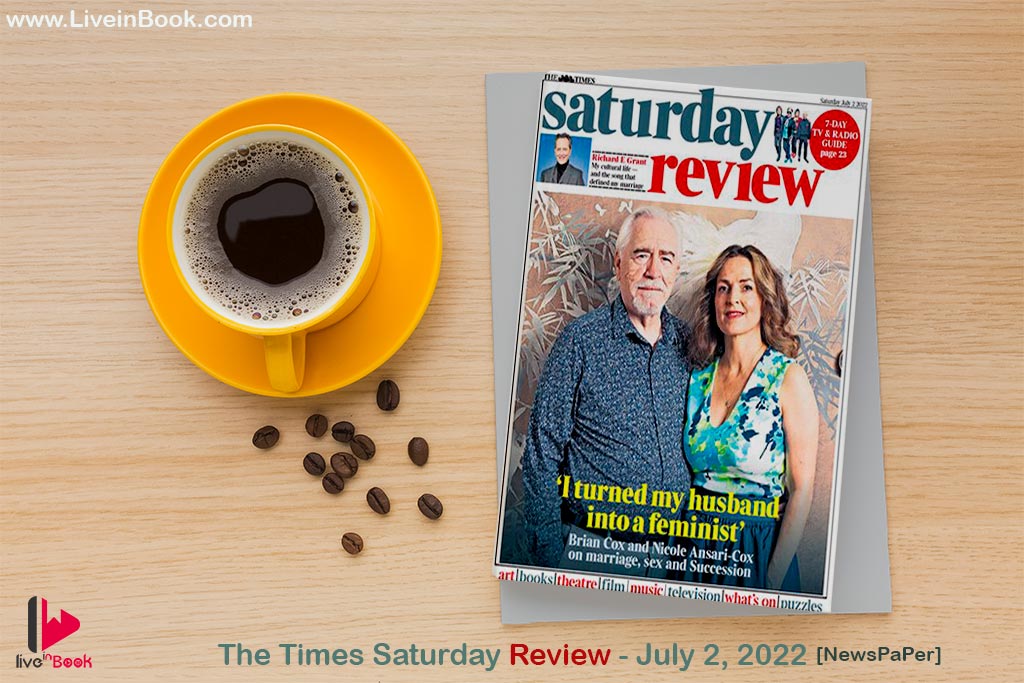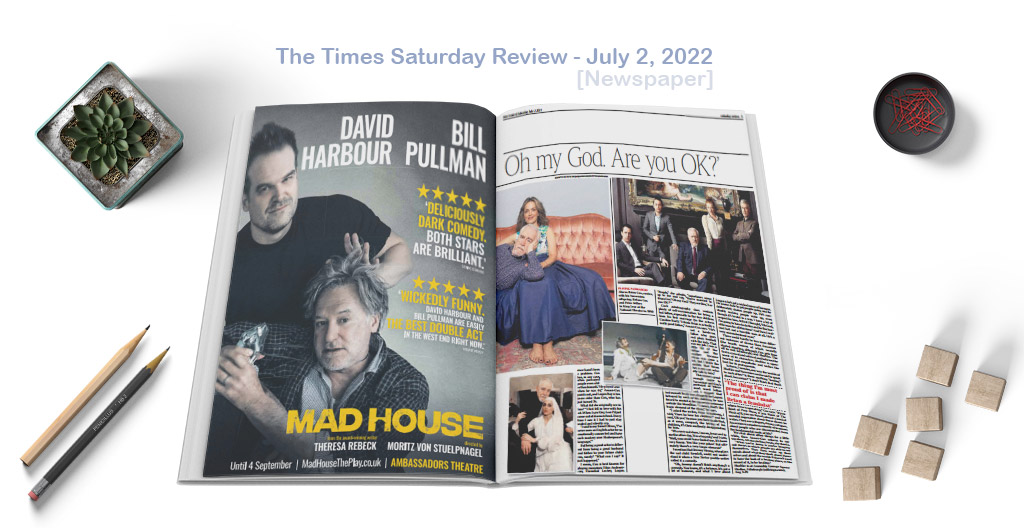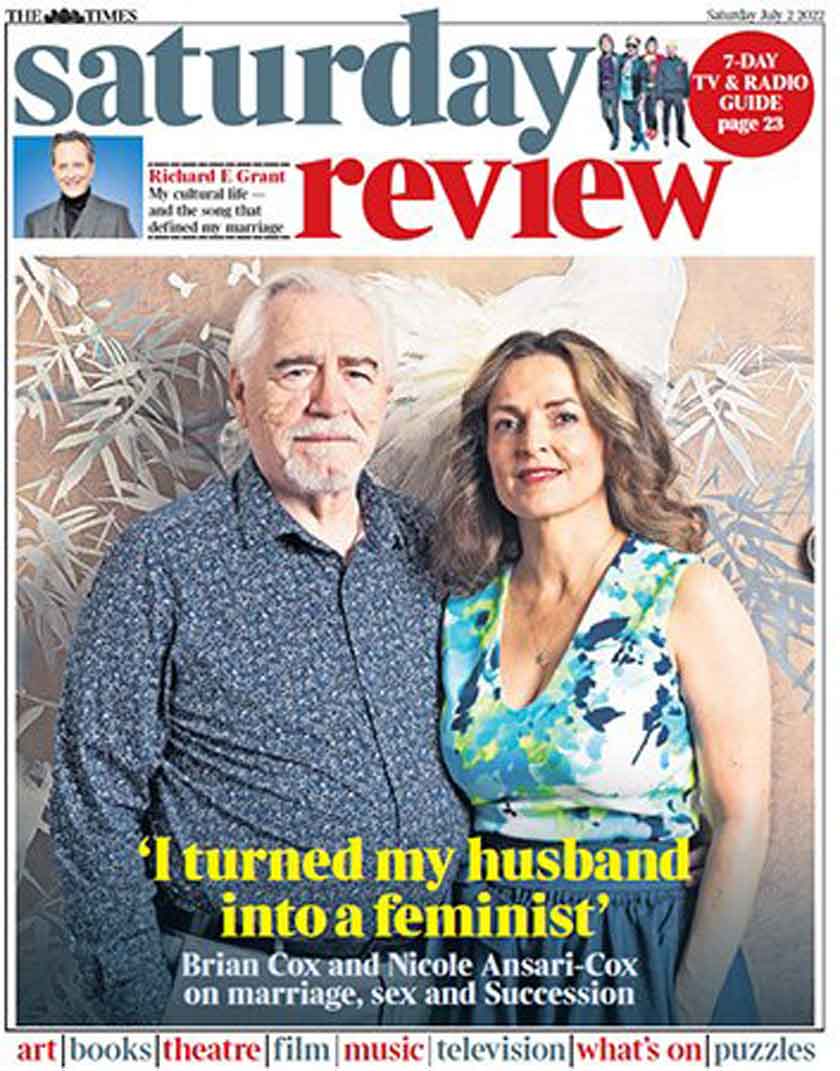Newspaper Review The Times Saturday Review
The Times Saturday Review is a weekly supplement of The Times newspaper that is published every Saturday. It is a comprehensive cultural section that offers readers in-depth reviews, analysis, and commentary on a wide range of topics, including books, music, film, theatre, and art.

Introducing the The Times Saturday Review Newspaper
One of the key features of The Times Saturday Review is its coverage of literature. The section includes reviews of the latest books, as well as interviews with leading authors and profiles of emerging writers. The section also features book recommendations and literary features, providing readers with a deeper understanding of the world of books and publishing.
The Times Saturday Review also offers extensive coverage of music. The section includes reviews of new albums and concerts, as well as interviews with leading musicians and profiles of up-and-coming artists. The section also features features on the history of music and analysis of the latest trends and developments in the industry.
In addition to literature and music, The Times Saturday Review also features comprehensive coverage of film, theatre, and art. The section includes reviews of the latest films and stage productions, as well as interviews with actors, directors, and other key figures in the entertainment industry. The section also features analysis of the latest art exhibitions and profiles of emerging artists.
Another key feature of The Times Saturday Review is its commentary on current affairs. The section includes opinion pieces and analysis from leading writers and experts, providing readers with a deeper understanding of the issues that matter most. The section also features investigative journalism, exposing corruption and wrongdoing in the worlds of business, politics, and beyond.
Overall, The Times Saturday Review is a must-read for anyone who wants to stay up-to-date with the latest cultural news and trends. Its comprehensive coverage of literature, music, film, theatre, and art, combined with expert commentary and analysis, make it a valuable resource for readers who want to broaden their horizons and stay informed about the world around them. Whether you’re a bookworm, music lover, theatre enthusiast, or art aficionado, The Times Saturday Review is the perfect way to explore the cultural world.
Translation of The Times Saturday Review
The Times Saturday Review Newspaper is currently only written in English. (If you need another language, let us know through comments) you can download this 56-page Paper through the LiveinBook website or read it online.
In a section of The Times Saturday Review, we read
emember how great Westworld There was a time when I thought it might be the best telly yet. It had been a classic film, set in a Wild West theme park used to be?
in which the malfunctioning androids were cold and psychopathic. Here, though, the androids were puzzled and innocent, and didn’t even know they were robots. It was the humans who were the psychopaths. We saw this best through the Man in Black — a clear echo of the film incarnation played by Yul Brynner, but played here by Ed Harris as a merciless human. He raped, he killed, he went full Grand Theft Auto. And the bots had to live it all again and again. It surfed the very crest of the tech zeitgeist like a less crashingly obvious Black Mirror. It made you question the ethics of computer games; not now, perhaps, but in the near future when a hundred temporary AIs will be wiped clean every time you pull the plug. It made you ask how much excuse a good person needed to turn bad and even had a whiff of that existential malaise inherent in gaming, so hard to capture, in which great mystery is always destined to slightly disappoint, and the final frontier is just a place where the background detail grows fuzzy, the faces aren’t finished and the logic fails. Best of all, it was wrapped up in a properly complex, thinky plot — the sort you mull over and untangle afterwards, at night, staring at the ceiling. Timelines were twisted. “Is this now?” characters would ask themselves, and you just didn’t know. The first two series were simply tremendous, ending with the mad finale of a bloodthirsty synthetic revolt and a couple of favoured Pinocchios escaping into reality. Whereupon, with series three,
the whole thing slalomed straight into a big steaming pile of nobody cares.
Did you get to the end of series three?
Did anybody? Dolores (Evan Rachel Wood) was in futuristic Los Angeles, but it all just looked like an airport in Dubai; bland and excessively stylised. I find I lack the energy to properly recount what was going on. Man and machine remained locked in conflict, just mainly in swanky restaurants. Meh. The bad news about season four is that
we’re still in futuristic reality, far from the park. The good news, though, is that I think it may be about to pull itself together. Dolores died in the previous one, after a fashion, but that never matters in Westworld. Now somebody who looks exactly like her is called Christina, and has a deadend job writing minor characters for computer games and goes on terrible dates. Strangeness niggles at her, though. Sometimes she seems blindsided by déjà vu. She’s being harassed by a man who seems to be one of her characters and resents it. What is real? Is this now? Harris is also back, playing — I think? — an android version of the human he used to be. We see him right at the start, outwitting a cartel boss who seems to also be an android, but not know it. In as much as I can make out, he’s planning a new park. Is Dolores/Christina in the new park? Was she? What sort of park is this, anyway, when all that happens in it is people looking at their phones and terrible dates? Whether we’re in a park or not, there seem to be androids everywhere now. To be honest, I have no idea what is going on, but now in the good, excited way that reminds me of seasons one and two rather than the listless, can’t-be-arsed way of season three. Which, I would say, is déjà vu to be welcomed. Fingers crossed. When computers don’t look like Evan Rachel Wood — which is usually — they don’t necessarily make for great drama. This is the problem grappled with, and I think admirably solved by Peter Kosminsky’s cyber-attack drama The Undeclared War. Obviously, you hear the words “cyber-attack drama” and think it’s all going to be people sitting around in windowless offices tapping keys at each other. And, indeed, there is quite a bit of that. Kosminsky’s genius, though, is to depict hacking as real-world espionage.
Right at the start, for example, we see our hero computer whizz Saara Parvin (Hannah Khalique-Brown) clacking at a
keyboard. Interspersed with this, though, we see her scaling walls, heaving open manholes, physically exploring a dreamlike, not quite real world. The latter is a metaphor for the former, and it works really well.
Information Page and the first The Times Saturday Review

Dear friends, support the respected author by legally purchasing the book.








Similar books
The Times Magazine - May 13, 2023
Marvel Spider-Man Pocket Expert: All the Facts You Need to Know 2022
The Times Weekend - May 13, 2023
The Times Sport - May 13, 2023